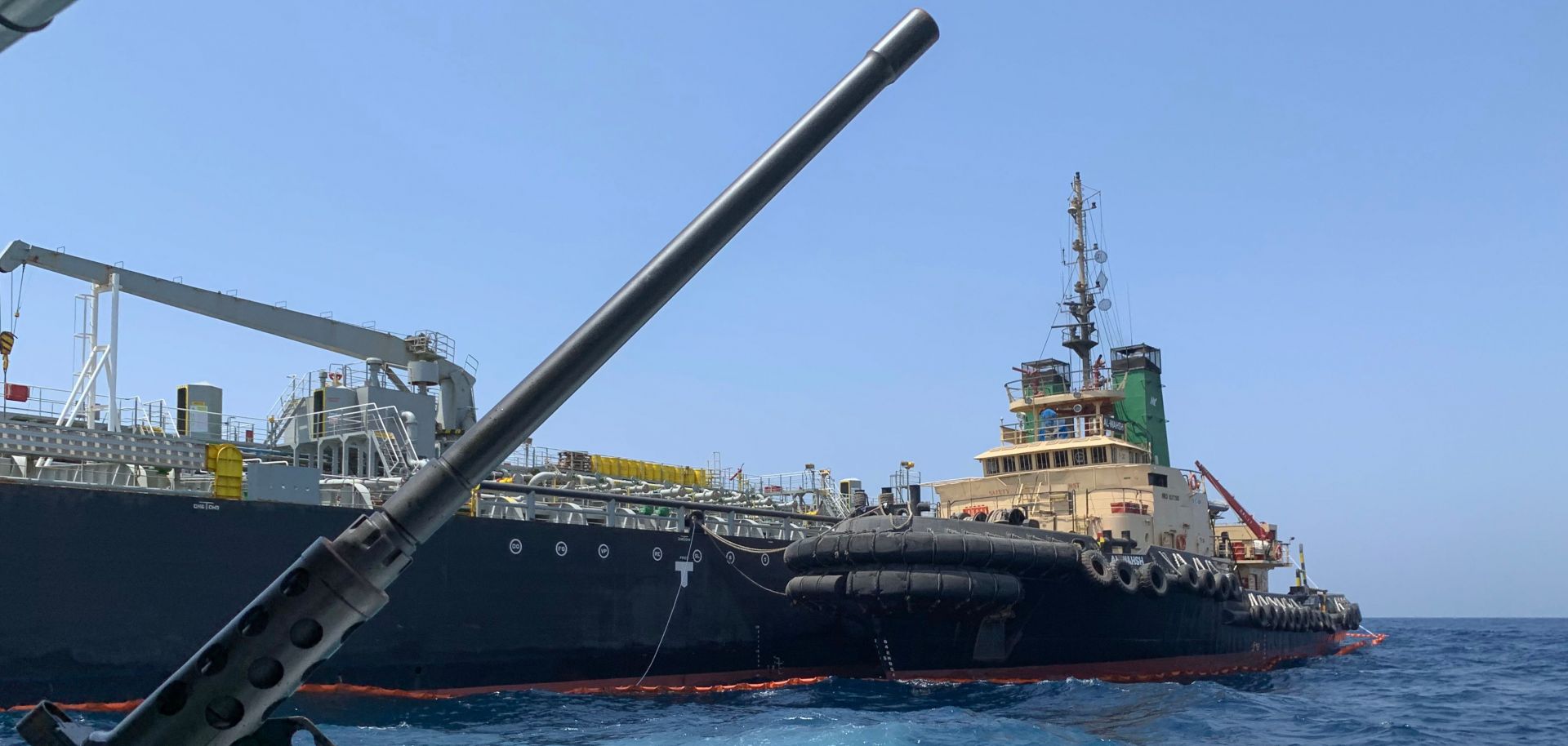ASSESSMENTS
Why the U.S. Plan to Protect Tankers in the Persian Gulf Won't Deter Iran
Jul 8, 2019 | 06:00 GMT

Two oil tankers were damaged in twin attacks close to the Iranian coast on June 13, just outside the strategic Strait of Hormuz.
Highlights
- Following a series of attacks on crude-bearing ships, the United States is looking to initiate a new program to enhance security in the Persian Gulf region with significant involvement from its allies and partners.
- The effort is reminiscent of a similar operation in the region during the Iran-Iraq War, though some key differences point to a shifting U.S. approach to the region.
- The White House, however, will struggle to find allies willing to lend their support out of fear of being drawn into a potential conflict between the United States and Iran.
- Regardless, Washington's program will ultimately prove unsuccessful in deterring future attacks because it fails to address the underlying issue propelling Iran's actions — namely, the crushing economic pressure the United States has brought to bear over the past year.
Subscribe Now
SubscribeAlready have an account?
